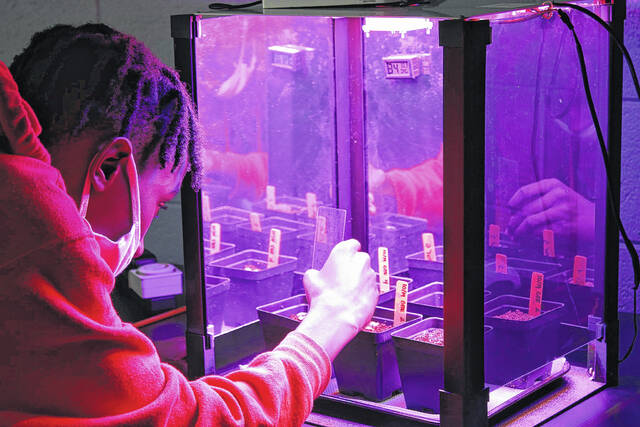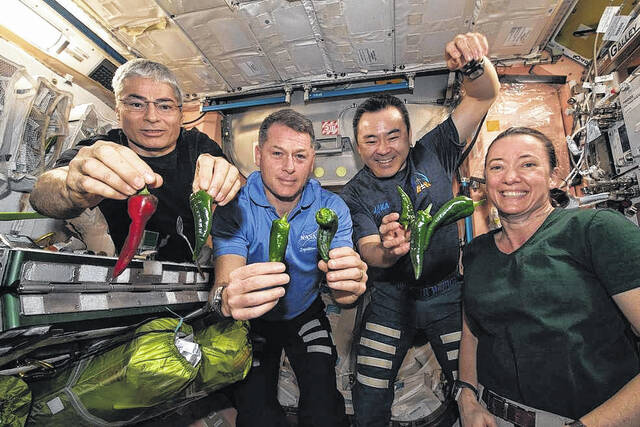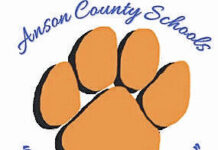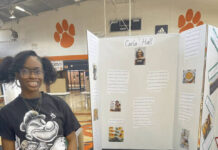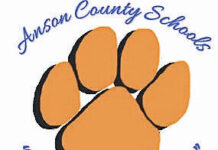WADESBORO — Anson High School students are growing plants for a research project with NASA which, when the students finish, will be sent to the International Space Station.
NASA has partnerships with schools to teach valuable scientific skills while building research to actually be used in space, helping to find the predecessors to extraterrestrial agriculture. Schools partner with NASA’s Vegetable Production System (Veggie) and the International Space Station to test crops. The goal is for these plants to provide astronauts with fresh, pick-and-eat produce aboard the spacecraft, useful because the standard freeze-dried and prepackaged foods can lose nutrients quickly and lack flavor.
“Veggie’s purpose is to help NASA study plant growth in microgravity while adding fresh food to the astronauts’ diet and enhancing happiness and well-being in the orbiting laboratory,” writes NASA. In the system, plants grow in compact “pillows” filled with clay-based media and fertilizer, which distribute water, nutrients, and air for the roots. Veggie is both low-power and simple in design, easily monitored and watered by crews aboard the aircraft.
NASA selected Anson High School as one of its partners. Through the program “Growing Beyond Earth” with Miami’s Fairchild Tropical Botanic Garden, NASA sent Anson High School growing chambers that mimic Veggie chambers.
The students have been growing radishes. They stay after school once a week, collecting weekly data logs for NASA to determine which radish might grow best in space.
“They’ve learned and gained experience on the actual scientific method — that’s important,” said Dana Wood, agriscience teacher with the high school. “They’re learning how to collect data, including measurements they’re just learning a ton of stuff.”
Students recently harvested and tasted their first round of radishes and are expected to have another 28-day harvest in January where they will change their parameters for a new set of data. They also had a Zoom session recently where they met with the lead scientist of NASA’s research at Louisiana State University.
“It was interesting to see some of the students intellectually gravitate towards and listen to what was actually going on and ask questions,” Wood said.
“Hopefully, this will be the first year of many to come. A lot of people once they start with this program, they’re reselected year after year, and the kids get better about what they’re wanting to experiment with,” he added.
Awesome work, Bearcats!
To support the Anson Record call 704-994-5474 or visit https://ansonrecord.com/subscribe.
Reach Hannah Barron at 910-817-2668 or hbarron@ansonrecord.com.

